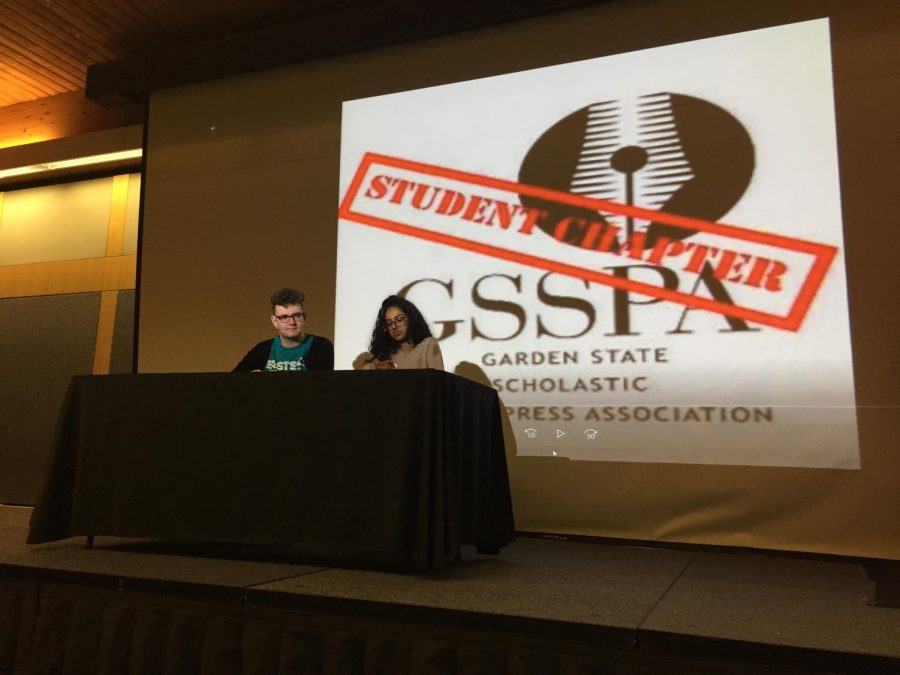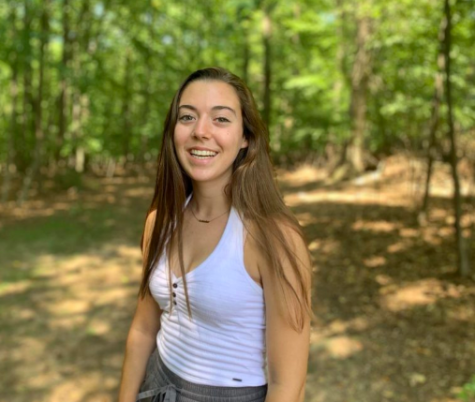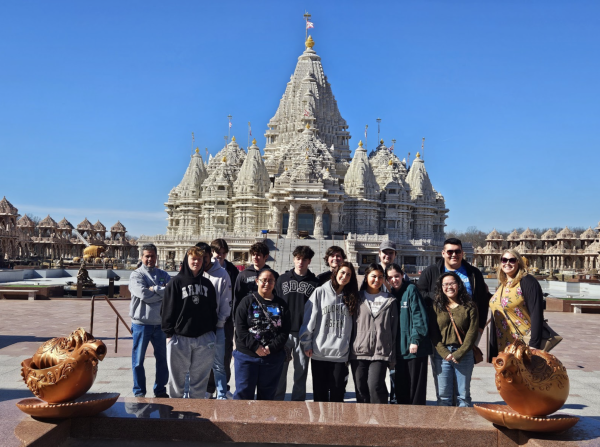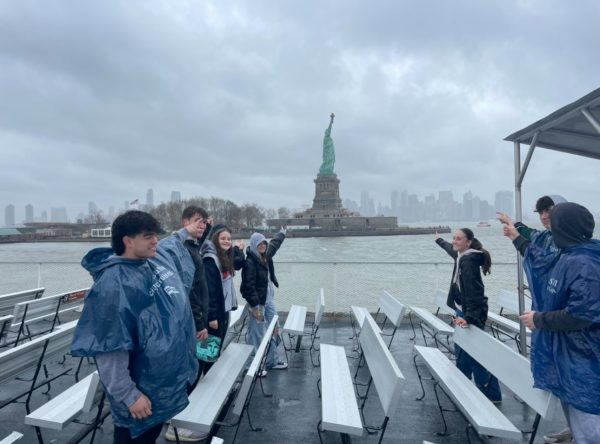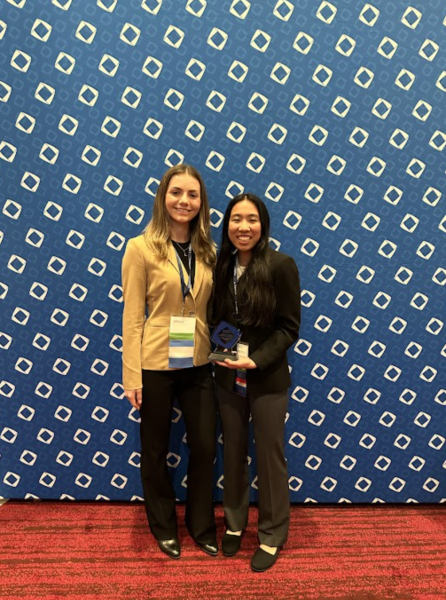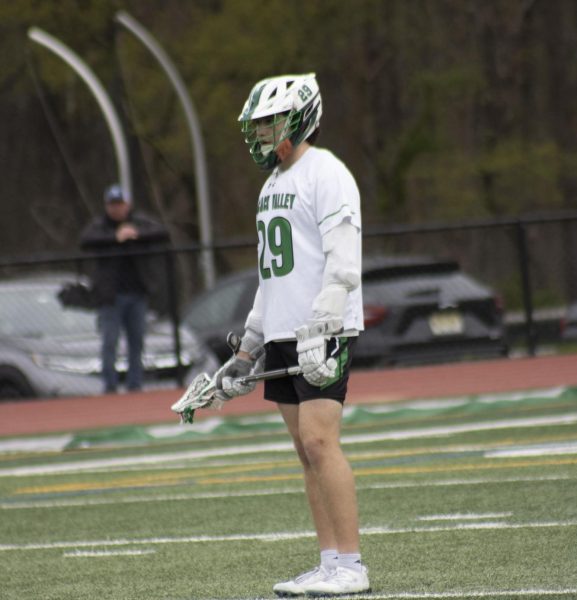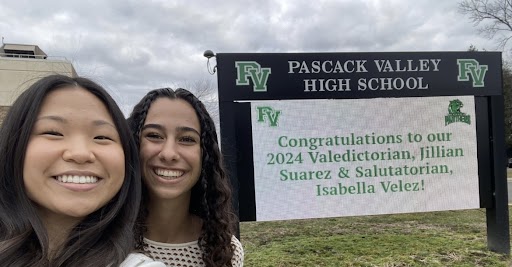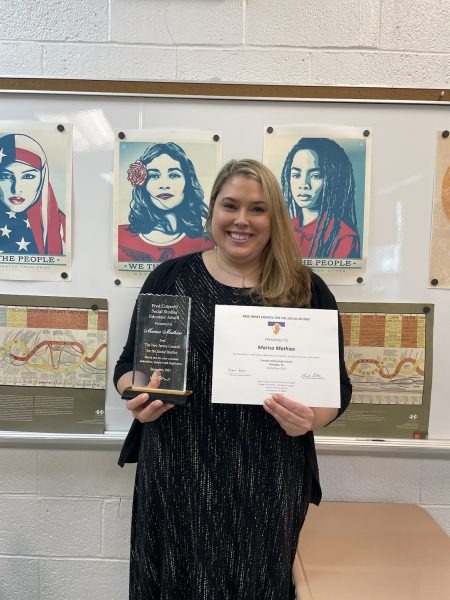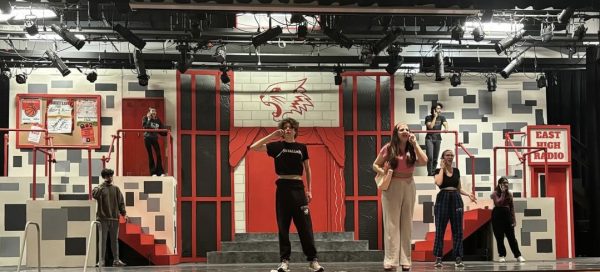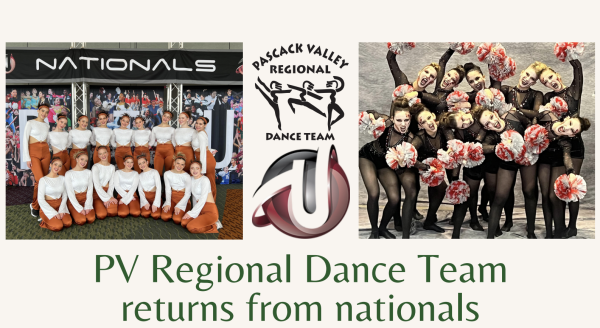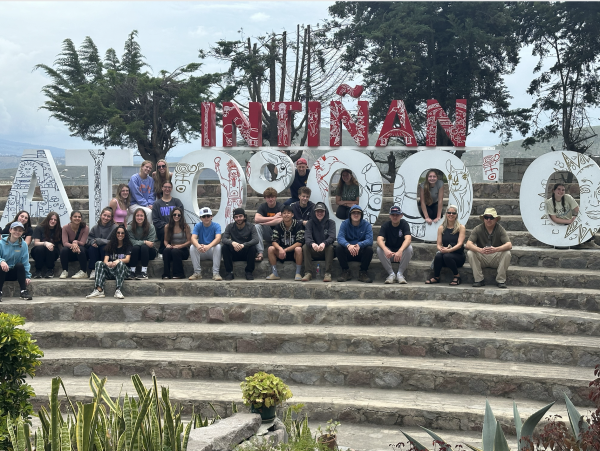New Voices for New Jersey
Student journalists discuss new legislation for high school publications
Aine Pipe, editor of Eastside High School’s newspaper and member of the Student Chapter of New Voices and Marlyum Rizwan, co-editor of Bergenfield High School’s newspaper present during the conference session, “Join the Student Freedom Fighters.”
(Editor’s note: This article was written in October for a Garden State Scholastic Press Association news write-off contest and won second place on Jan. 26. This article was published for Student Press Freedom Day on Jan. 30.)
John Tagliareni, one of the founding members of the Garden State Scholastic Press Association and retired Bergenfield teacher, held a conference session called “Cornflakes, Confessions, and Controversies” during the GSSPA Fall Conference at Rutgers University the morning of Oct. 29.
During the conference, Tagliareni asked the student journalists if they ran into any issues with censorship at their school. A girl raised her hand and explained how she wrote an article detailing her concern about her school’s safety. Without an explanation, her school’s principal reviewed it and told her it was not a good idea to publish it.
Following her response, Tagliareni handed a postcard to each student in the class urging them to sign it. The goal of these postcards, that were to be sent to the state assembly members and senators, was to gain support for the New Voices movement by addressing the censorship of high school publications.
New Voices is a state level legislation that allows students to report on any topic without the approval of their administration. Passing this law protects the First Amendment rights of both the students and their advisers.
New Jersey does not have any added protection for student journalists, and for this reason, scholastic journalism advocates are working to get the New Jersey’s New Voices bills (S1176 and A238) passed in every state.
This movement has been going on for decades, with California being the first state to pass the New Voices legislation in 1977. Since then, 13 other states have adopted the legislation.
“Jersey really needs this bill because we’ve gotten it as far as we can take it,” Tagliareni said. “We now need this mass support.”
Tom McHale, high school journalism and English teacher at Hunterdon Central Regional High School, said how this legislation does not outlaw prior review and is not an “anything goes” law, but instead, gives school districts ground rules for what is allowed within the context of their newspapers.
According to Nj.com, McHale resigned from his position in 2013 as newspaper adviser for the school publication THE LAMP ONLINE for Hunterdon Central High School. HCHS enacted a new school board policy that requires prior review for each article, which McHale saw as a lack of trust and respect for their newspaper.
“[The New Jersey’s New Voices Bills] will allow us not only to publish stories about student protests and student voice movements, accurately and truthfully,” student speaker Aine Pipe said, a news editor of Cherry Hill East High School’s newspaper Eastside and member of the Student Chapter of New Voices. “It will also allow us to get it to the people quickly which is ultimately, in this era of online journalism, what we need.”
The Student Chapter of New Voices is composed of New Jersey students who work together online to network with each other about their rights as student journalists. Its goal is to empower these students and place more control of the publication into the hands of the students who run it.
The Smoke Signal’s Madison Gallo, Rachel Cohen, and Katie Mullaney are members of New Jersey’s Student Chapter.
Frank LoMonte, former executive director of the Student Press Law Center, said that New Jersey has submitted more complaints about censorship in the last few years than any other state, with phones constantly ringing off the hook.
“Our school [paper] is not generally censored but we do have prior review,” Pipe said. “So basically, we wrote an article about the walkout the day it happened on March 14, and by the time the principal had okayed it, it was March 18. Now I’m sure all of you know… straight news really only applies for the first two days.”
Prior review can affect the timeliness of articles by prohibiting the student journalists to publish articles on their own terms or immediately after events, according to Pipe.
Tagliareni said that there are multiple sources that can help to educate student journalists on why it is important to support this cause: New Voices U.S., New Voices of NJ, and The Student Press Law Center.
“If legislation isn’t your cup of tea, I know the political process can be daunting for some. I still recommend you join this chapter,” Pipe said. “Although advocating for New Voices is an important part of what we do, we have a lot of exciting other things planned that celebrate and reinforce student journalism in our communities. We are going to get a lot done.”

